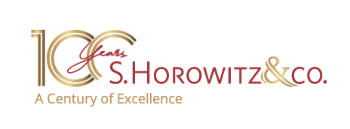This question was discussed in a recent judgement of the Israeli Registrar of Trademarks ("the Registrar"), in an opposition to register the trademark "Treboss"[1] ("the Opposition"), in which the Registrar addressed the issue of the scope of protection that a word of an "universal sense" used in a trademark should enjoy under the Israeli Trademark Ordinance [New Version], 1972 ("the Ordinance").
The applicant, an Israeli company founded in 1986 engaged in the field of eyewear ("the Applicant"), filed an application to register the trademark 
According to the Applicant, the idea for the brand name was conceived after the retirement of the company's founder, when his three children came up with the mark "Treboss" - "tre", Italian for "three", representing the number of siblings who succeeded the company’s founder after he retired, and "boss" in honor of their father's nickname as the company's first boss.
The Opposition was filed by HUGO BOSS Trade Mark Management GmbH & Co. KG ("the Opponent"), a company owned by the famous fashion company, Hugo Boss AG ("HUGO BOSS"). Among other luxurious goods, HUGO BOSS manufactures and markets clothes, shoes, eyewear, and watches. The Opponent owns, inter alia, trademark no. 68300 for BOSS (word mark), registered in Israel in class 9 with respect to eyewear ("the Opponent's Mark") as well as various additional registered trademarks for BOSS and HUGO BOSS. The Opponent argued that the Requested Mark is confusingly similar to its registered trademarks "BOSS" and "HUGO BOSS".
The Registrar applied the triple test established by Israeli case law to examine claims of “confusing similarity”: the appearance and sound test, the type of goods and customers test, and the additional circumstances of the particular case test. The Registrar's analysis focused in the BOSS trademark, which was considered to be the closest to the Requested Mark.
1. The Appearance and Sound Test
The Registrar determined that the Requested Mark will be perceived by consumers as a whole and not as two separate elements, as argued by the Opponent. The prefix - "Tre", with the addition of the 3 dots placed above it, distinguishes the Requested Mark from the Opponent's Mark and, thus, eliminates any risk of “confusing similarity”, as far as appearance is concerned.
The absence of "confusing similarity" was also noted regarding the sound of the trademarks. The Registrar noted that, while the Opponent's Mark consists of one syllable, the Requested Mark consists of two syllables, and the emphasis is placed on the first syllable, which distinguishes the Requested Mark from the Opponent's Mark.
The Registrar then concluded that there is no risk of confusion in terms of appearance and sound, hence, there is no need to further examine the two remaining elements of the triple test. Notwithstanding the above, the Registrar expressed his view also with respect to the remaining elements, as derailed below.
2. The Type of Goods and Clientele
The Registrar briefly noted that the trademarks in question relate to goods of the same description and even similar goods (optical goods) and are marketed in similar marketing channels and to the same group of customers. As for the Applicant's argument concerning distinguished clientele and level of prices, the Registrar noted (referring to the Registrar's former ruling in the matter of trademark no. 574852[2]) that such alleged differences do not find expression in the Register (namely, the description of goods of the Requested Mark is not limited to a certain pricing level and clientele and the actual pricing and clientele may become closer over time).
3. The Additional Circumstances of the Particular Case Test
The Registrar dismissed the Opponent's claim that the perceived meaning of the BOSS element in the two marks is the same, allegedly since the Opponent's consumers do not associate the word "BOSS" with the name of the brand's founder, Hugo Boss, but rather with the English word "boss" – thus increasing the risk of confusion. The Registrar opined that as the result of the often use of the word “BOSS” together with the name "Hugo" the consumers have come to associate the Opponent's "BOSS" trademark with the name of the brand's founder, Hugo Boss.
Furthermore, the Registrar added that, even if consumers associate the "BOSS" trademark with its dictionary meaning, the association would not reinforce the Opponent's case: although the word "boss" has no special meaning in the context of fashion, it is a commonly used word, associated with various positive meanings, such as control, management, expertise and influence. Therefore, the word "boss" is a word with a "universal sense", hence, even if entitled to protection as a trademark, it cannot be completely expropriated by the Opponent.
The Registrar reached the same conclusion regarding the Opponent's claim, whereby the Requested Mark should be refused in view of the Opponent’s Marks being well-known trademarks which enjoy the enhanced protection provided by Section 11(14) of the Ordinance, which reduces the level of similarity required to prevent the registration of a trademark that indicates a connection, as opposed to a confusion, with a well-known mark. Although admitting that “HUGO BOSS” is a well-known trademark in Israel, the Registrar asserted that in view of lack of confusing similarity (by appearance and sound) between the respective marks, there is no likelihood of association. In addition, the Opponent is not likely to be harmed by the use of the Requested Mark by the Applicant, as required under said Section 11(14).
The Opponent's allegations regarding the Applicant's bad faith in choosing a trademark that is misleading and that may cause the dilution of its well-known trademarks were also rejected by the Registrar, who stated that "Treboss" is an imaginary word, invented by the applicant.
In conclusion, the Registrar denied the Opposition to register the Requested Mark and ordered its registration.
This decision expresses the need to balance the trademark owner's right by law to protect his trademark, with the need to keep "daily words" available for the use as trademarks by third parties.





